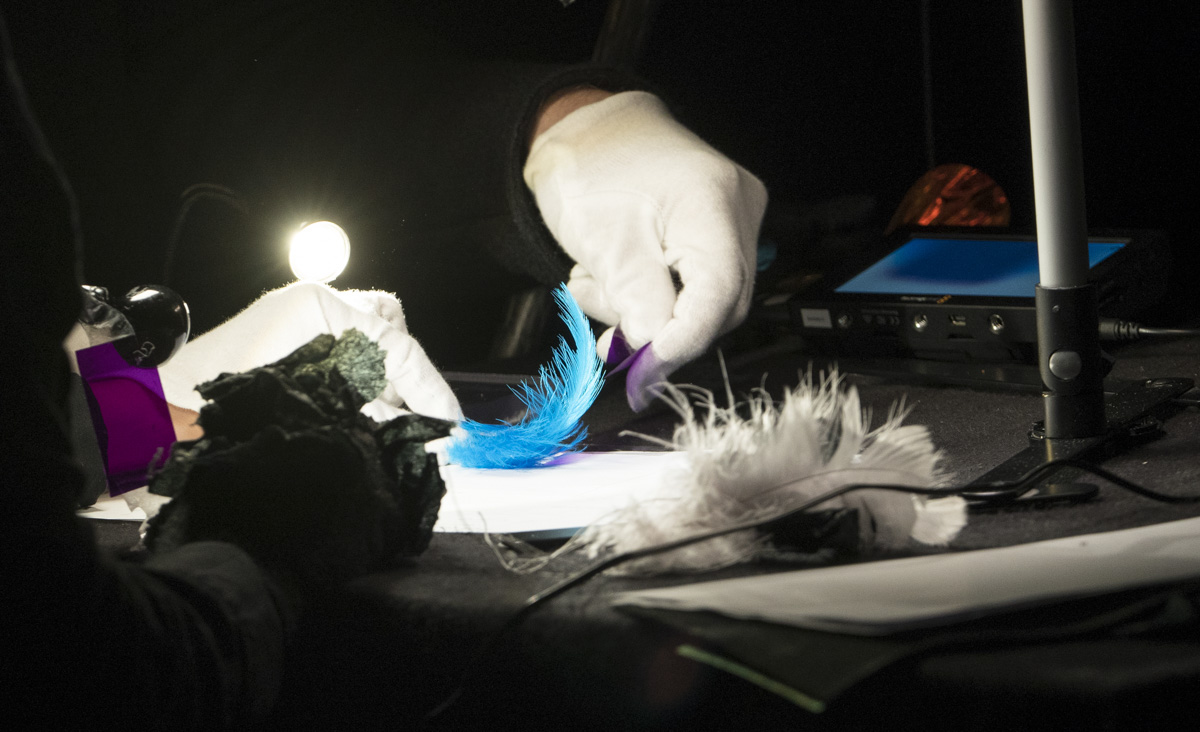Seit 2015 entwickelt das ensemble mosaik mit dem deutsch-isländischen Kuratorenduo Dorothée Kirch und Markús Þór Andrésson das Projekt Visual Resonance. Im Rahmen der Reihe Kommentierte Musik startete die spartenübergreifende Zusammenarbeit von Komponisten, bildenden Künstlern und dem ensemble mosaik. Unter dem Titel LIMINALITIES werden in gemeinsamen Probenphasen entwickelte „vierdimensionale“ Arbeiten in Reykjavik und Berlin gezeigt. In Teamarbeit erforschen die isländischen KünsterInnen Margrét H. Blöndal, Haraldur Jónsson, Anna Rún Tryggvadóttir und Darri Lorenzen, die KomponistInnen Ann Cleare, Kaj Duncan David und Rama Gottfried und das ensemble mosaik die Ausdrucksmöglichkeiten audiovisueller Kunstformate.
PROGRAMM
– Opening: Margrét H. Blöndal – Haraldur Jónsson / Rama Gottfried: Shiftings / i. envelopments (2018) für vier Performer und Publikum Anna Rún Tryggvadottir / Ann Cleare: unable to create an offscreen world (2010/18) für Flöte, Oboe, Violine, Violoncello, Schlagzeug und Tape – Margrét H. Blöndal – Haraldur Jónsson / Rama Gottfried: Shiftings / ii. foldings (2018) für zwei Performer, Flöte, Oboe und Elektronik Rama Gottfried: scenes from the plastisphere: part 1 (2017/18) für drei Performer und Video Darri Lorenzen / Rama Gottfried: Of the three (2018) Video mit Keyboard und EWI Haraldur Jónsson / Rama Gottfried: Shiftings / iii. approach (2018) für vier Musiker, Live-Elektronik und vier Performer Kaj Duncan David: micro .· micro : micro .·:: micro .:·.: (2017/18) für EWI, Flöte, Violine, Schlagzeug, Live-Elektronik und Video
ensemble mosaik: Bettina Junge, Flöte – Simon Strasser, Oboe – Ernst Surberg, Klavier – Roland Neffe, Schlagzeug – Chatschatur Kanajan, Violine – Karen Lorenz, Viola – Mathis Mayr, Cello – Arne Vierck, Klangregie
Haraldur Jónsson / Rama Gottfried Shiftings (2018) i. envelopments for paper, bows, and audience ii. foldings for fabric, oboe, and piccolo iii. approach for thread, speakers, live-electronics and audience
A set of performances which function to reconfigure the experience of distance and textural sensitivity in the room, using sound, physical material, and action as a kind of spatial acupuncture.
Darri Lorenzen / Rama Gottfried: Of the three (2018) for video, gloves, computer vision, synthesizer and EWI
In 2015, Lorenzen made an installation called Of the two, based on an overhead video recording of Enno Poppe conducting Gottfried’s Flint, dressed all in black, and wearing white sporting gloves. For the installation, Lorenzen used an audio recording of Poppe’s feet on the wooden podium during the performance, which filtered the sound of the ensemble, and amplified the sounds of his shoes as he moved through the piece. In the new work, Of the three, Poppe’s disembodied hands conduct the work again, re-interpreted by two performers and a computer vision algorithm, who follow the conductor’s hands indicating musical flow and articulation, creating a new translation of the piece.
Rama Gottfried Scenes from the Plastisphere: part 1 (2017/18) for video-puppetry-instrument and three performers
In the middle of the ocean’s floating continent of plastic, a new microbe ecosystem has emerged which scientists have named the plastisphere. This is good news, because it suggests that life on Earth can not be destroyed by human carelessness — but on the other hand, the resulting ecosystem may not be one which supports life as we know it. In Scenes from the Plastisphere a digital-organic habitat is constructed and used to examine situations and prospectives in human/non-human interaction. Here we present the first scene from a four part series.
Anna Rún Tryggvadóttir / Ann Cleare unable to create an offscreen world (2010/18)
unable to create an offscreen world (a), (b) and (c) are a series of pieces, which explore ideas of wrongness, incompatibility, and inability with ferocious streams of energy, confidence and hope.

